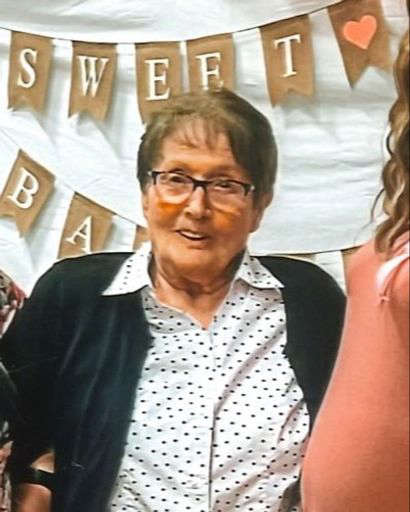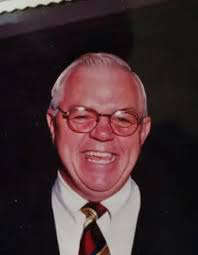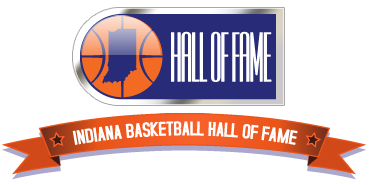
The Indiana Basketball Hall of Fame board of directors has announced its 63rd induction class, to be honored in ceremonies on March 19, 2025.
Eighteen men are in the class, including a pair of Indiana Mr. Basketball winners in Bryce Drew of Valparaiso in 1994 and Troy Lewis of Anderson in 1984. The class also includes eight other players, seven coaches and one administrator – Greg Humnicky of South Bend – as the Indiana Pacers/Indiana Fever Silver Medal winner. The Silver Medal is presented to a person who contributed to Indiana high school basketball in a role other than as a player or coach.
The late D. Earl “Swede” Chambers is the Centennial Award winner, which is presented to one inductee who graduated high school 100 years or longer ago. A 1920 graduate of Smithville, Chambers’ teams won more than 530 games with five sectional titles (1931, 1944, 1945, 1949, 1950), one regional crown (1931) and a 1931 State Finals berth over 36 seasons at seven schools – Smithville (1920-21), Crothersville (1921-24), Brownstown (1924-31), Center Grove (1931-38), Shoals (1938-42), Paoli (1942-52), Shoals again (1952-54) and Medora (1960-62). Chambers was a 1920 graduate of Smithville, where he played varsity basketball for four seasons, including the last three for coach John Adams. Chambers earned a bachelor’s degree from Indiana University in 1933 and a master’s degree from Indiana State in 1952. He also served as an elementary school principal in Daviess and Tipton counties. The gymnasium at Paoli Junior/Senior High School was named the D.E. “Swede” Chambers Gymnasium on Feb. 6, 1976.
The late Wilbur Cummins was a 1925 graduate of Frankfort, where he led the Hot Dogs to the 1925 state championship and a 1924 state runner-up finish. Cummins totaled 1,140 points during high school, including a school-record single-game best of 49 points vs. Owensville on Dec. 11, 1923. He averaged 10.7 points for a 24-6 State Finalist squad as a sophomore, 17.8 points for a 27-2 team as a junior and 16.3 points (despite missing 10 games because of injury) for a 27-2 unit as a senior. Cummins played at Purdue for Ward “Piggy” Lambert, earning first-team all-Big Ten honors in 1927 when he led the league with a 10.3 average in 12 conference games, and served as the Boilermakers’ captain in 1928-29. He also coached at Brook (1929-31), Elwood (1931-33), Mooresville (1933-37), Gas City (1937-47) and Frankfort (1947-52), his teams winning seven sectionals (1930, 1931, 1944, 1946, 1949, 1950, 1952) and two regionals (1946, 1949).
Bryce Drew, the 1994 Indiana Mr. Basketball and IHSAA Trester Award winner from Valparaiso, has succeeded at all levels of basketball as a player and coach. He had high school career totals of 1,577 points (17.9), 303 rebounds (3.4), 386 assists (4.4) and 218 steals (2.5) while leading the Vikings to a 69-26 record over four seasons. That included a 28-1 state runner-up finish as a senior while averaging 24.7 points, 4.1 rebounds, 5.3 assists and 2.8 steals. Earlier, he tallied 10.4 points, 2.0 rebounds and 3.7 assists as a freshman for an 8-14 squad, 15.2 points, 2.8 rebounds and 4.2 assists as a sophomore for a 16-5 team and 17.7 points, 4.3 rebounds and 3.9 assists as a junior for a 17-6 unit. He was named 1992 IBCA honorable mention All-State, 1993 AP high honorable mention All-State, 1993 IBCA Underclass All-State, 1994 AP first-team All-State, 1994 IBCA first-team All-State and 1994 Gatorade Indiana Player of the Year. Drew then went to Valparaiso University to play for his father, Homer Drew. At VU, Bryce amassed a school-record 2,142 points (17.2) plus 380 rebounds (3.1) and 626 assists (5.2) in keying the team to an 88-36 record. That included a memorable 1998 NCAA Tournament run where Drew hit “The Shot” that catapulted 13-seed Valparaiso past 4-seed Mississippi before VU upset Florida State in overtime. Drew four-times earned all-Mid-Continent Conference honors, twice was league Player of the Year, was named to the 1998 NCAA all-Midwest Region team and was a third-team All-American. A first-round pick by Houston in the 1998 NBA Draft, Drew played six seasons in the NBA – two with Houston, one with Chicago, one with Charlotte and two with New Orleans. He averaged 4.4 points and 2.2 assists in 243 career regular-season NBA games. He played professionally in 2004-05 in Italy and Spain, then joined his father’s staff as an assistant coach at VU from 2005-11. In 2011, Bryce was promoted to head coach at Valparaiso, going 124-49 over five seasons with four Horizon League regular-season titles, two HL Tournament crowns and two NCAA Tournament berths. He was a three-time HL Coach of the Year and a two-time NABC District 12 Coach of the Year. Drew then went to Vanderbilt with NCAA Tournament appearance, and he currently is in his fifth season at Grand Canyon University in Arizona. His first four seasons at GCU have produced a 94-32 record with two Western Athletic Conference regular-season championships, three WAC Tournament trophies and three NCAA Tournament berths. Entering 2024-25, Drew’s overall college coaching ledger is 258-140 with six NCAA Tournament berths in 12 seasons.
Matthew Graves totaled 1,804 career points while leading White River Valley to three sectional titles and two regional crowns during high school. A 1993 Indiana All-Star, Graves averaged 16.0 points (354), 3.8 rebounds and 4.3 assists as a freshman at Switz City Central in the final year before the school consolidated with L&M and Worthington into White River Valley. He then netted 15.8 points (411), 3.2 rebounds and 3.5 assists for a sectional winner as a sophomore, 20.5 points (535), 5.4 rebounds and 4.2 assists for a regional winner as a junior and 20.2 points (504), 5.4 rebounds and 3.9 assists for another regional winner as a senior. He was voted 1993 AP first-team All-State after being selected 1992 AP high honorable mention All-State and 1991 AP honorable mention All-State. He also was all-tournament in the Hall of Fame Classic in December 1992. Graves matriculated to Butler University, averaging 8.8 points and 1.7 rebounds with a career 84.6 free throw percentage over five seasons (playing just six games in 1994-95 because of injury). He averaged 9.9 points as junior and 12.0 points and was Midwestern College Conference all-tournament as senior as the Bulldogs qualified for the 1997 and 1998 NCAA Tournaments. Graves began a coaching career in 1998-99 at Indianapolis North Central, which was the 1999 Class 4A state champion. He assisted the next two seasons at Ben Davis before returning to Butler for 12 years, 2001-03 as director of basketball operations and 2003-13 as an assistant (or associate head) coach. On the sidelines, he helped the Bulldogs earn seven NCAA Tournament berths and national runner-up finishes in 2010 and 2011. Graves went 65-96 in five seasons as head coach at the University of South Alabama. He then was an assistant coach for one season at the University of Evansville, two seasons at Xavier University and three seasons at Indiana State before being named this past April as the Indiana State head coach for 2024-25.
Ron Hecklinski posted a 434-245 record in 30 seasons as an Indiana varsity basketball coach, leading teams to six conference championships, six sectional titles and one regional crown in a career that included stops at Wapahani (36-30 from 1981-84), Jasper (14-7 in 1984-85), Edgewood (44-21 from 1986-89), Anderson (274-138 from 1993-2011) and Mishawaka (66-49 from 2017-22). He also served as a college assistant for five seasons, 1985-86 at Illinois State and 1989-93 at Ball State (including a spot in the 1990 NCAA Sweet 16 and a 1993 NCAA Tournament berth). Hecklinski is a 1974 graduate of South Bend Saint Joseph, where he played two varsity seasons for teams that finished 15-8 and 10-11. He averaged 10 points, six rebounds and won the best defender award as a senior. Hecklinski attended St. Edward’s University in Texas for a semester, then transferred to play three seasons at Manchester College. He averaged 11.1 points for a 17-11 squad that reached the NAIA District 21 final as a sophomore, had norms of 15 points and 10 rebounds in being named honorable mention all-conference as a junior and had a 9.0-point average as a senior. Hecklinski began his coaching career in 1978-79 as freshman coach at Knox, then was Richmond JV coach from 1979-81 before his first head coaching opportunity at Wapahani. He was head coach for the East team in the 2003 McDonald’s All-American Game in Cleveland, assisted in the McDonald’s game four other times and was the 2010 Indiana All-Star head coach. Twenty-one of his former assistant coaches have become head coaches. Also, 38 of his former players have gone into teaching and coaching, with 11 of those ex-players becoming head coaches. Hecklinski accomplished much of his success after undergoing a life-saving liver transplant in July 1996. Notably, the IHSAA granted Anderson special permission for a benefit game in Washington, D.C. On Jan. 29, 1998, Heck’s Indians – No. 1 in Indiana Class 4A and No. 14 nationally – posted a 68-63 victory over national No. 2 DeMatha (Md.) and coach Morgan Wootten, who also had recovered from a liver transplant in the summer of 1996.
Scott Hicks is a 1983 graduate of Indianapolis Cathedral, where he totaled 1,336 career points en route to being named an Indiana All-Star after he helped the Irish to a four-year record of 70-30 record and a spot in the 1982 IHSAA State Finals. He averaged 7.5 points as freshman for a 9-14 team, 13.8 points as a sophomore for a 14-10 squad, 15.6 points and 9.7 rebounds as a junior for a 27-3 unit and 20.4 points and 11.2 rebounds as a senior for a 20-3 squad. Hicks was named AP first-team All-State, UPI first-team All-State and All-American by Parade Magazine, Converse and Adidas in 1983. He was AP honorable mention All-State and UPI first-team Junior All-State in 1982. He also was a three-time Indianapolis All-City and three-time all-sectional honoree as well as MVP of the Hall of Fame Classic in December 1982. Hicks matriculated to Notre Dame, where he totaled 878 points (7.5), 380 rebounds (3.2) and 156 assists (1.3) as the Fighting Irish went 89-35 during his four seasons and played in three NCAA Tournaments. He was a captain and the ND mental attitude award winner in 1986-87. Hicks, named to an Indianapolis 1980s all-decade team by The Indianapolis News in 1989, played with Athletes In Action and in the World Basketball League from 1989-93. He served as an assistant athletic director at Butler University from 1994-97 and was a Cathedral assistant coach from 1997-2000. He then went 172-54 as Cathedral head coach from 2000-10 and 115-73 as Indianapolis Broad Ripple head coach from 2010-18. His overall head coaching record in 18 seasons was 287-127 (.693) with seven Indianapolis City Tournament titles, two sectional crowns (2013, 2016) and a Hall of Fame Classic championship (December 2006). An assistant coach for the Indiana All-Stars in 2016, Hicks has been athletic director at Indianapolis Washington from 2018 to the present.
The late Dan Howe averaged 13 points and 10 rebounds as a senior to help Fort Wayne South Side to the 1958 IHSAA state championship. A four-year varsity player, Howe tallied 6.4 points as a junior and helped the Archers to records of 21-7, 20-7 and 28-2 over his last three seasons with three Fort Wayne city titles plus crowns in three sectionals, three regionals and one semi-state. The 6-5 forward was chosen 1958 Indianapolis News first-team All-State and played in the 1958 Indiana-Ohio All-Star Game. He also played football, golf and excelled in track in high school, winning state titles in 1956 (880-yard relay) and 1958 (low hurdles). Howe played collegiately at The Citadel and Ball State. He averaged 12.1 points and 6.6 rebounds as a junior at The Citadel and 15.0 points and 11.1 rebounds as a senior at Ball State. Howe followed with a career in education, working as a teacher and coach at Kekionga Junior High, Fort Wayne Central and Fort Wayne Northrop (1965-73). He then was dean of boys at Fort Wayne Snider in 1973-74, principal at Fort Wayne North Side in 1974-91 and assistant superintendent for Fort Wayne Community Schools in 1991-95. He served on the IHSAA Board of Directors from 1984-90 and was the 1988 Indiana Educational Administrator of the Year. Howe was inducted into the Fort Wayne South Side Athletic Hall of Fame in 1974, collected a Fort Wayne South Side Distinguished Alumni Award in 1996 and was inducted into the Indiana Track & Field Hall of Fame in 1996.
Erv Inniger is a 1963 graduate of Berne, where he totaled 1,132 points while leading the Bears to a three-year record of 67-12. The team went 25-3 and won Adams County, sectional and regional titles in 1960-61, 21-4 with county, conference and sectional crowns in 1961-62 and 21-5 with sectional and regional trophies in 1962-63. Inniger averaged 20.0 points with exactly 500 points in 25 games as a senior. He was the lone underclass starter and an all-regional performer as a junior. He also started as a sophomore and was selected all-semi-state. Inniger matriculated to Indiana University, averaging 13.5 points and 5.1 rebounds for an 18-8 squad that made the NCAA Tournament as a senior. He totaled 343 points (6.7) and 139 rebounds (2.7) in 51 games over three seasons with the Hoosiers and was a sixth-round draft choice by the ABA’s Minnesota Muskies in 1967. Inniger played two seasons in the ABA, one with Minnesota and one with the Miami Floridians. His ABA career totals were 1,102 points (9.3), 442 rebounds (3.8) and 191 assists (1.6) in 119 games (109 regular season, 10 playoff), his second season cut short because of military service. Inniger then became a college coach, posting a 409-224 mark with seven 20-win seasons at three schools. He was 66-32 at Golden Valley Lutheran College (Minn.) from 1969-73, 99-42 at Augsburg College (Minn.) from 1973-78 and 244-150 at North Dakota State from 1978-92. He was three-time Minnesota Intercollegiate Athletic Conference Coach of the Year (1975, 1976, 1977), the 1977 NAIA District 13 Coach of the Year and the 1981 North Central Conference Coach of the Year. At NDSU, his teams had 13 winning seasons, won the 1981 NCC title and placed third in 1981 and second in 1983 in NCAA Division II regional events. Inniger then was an associate athletic director at NDSU from 1992-2011 and was inducted into the NDSU Athletic Hall of Fame in 2001. He coached Park Christian School in Moorhead, Minn., to a 22-10 record in 2013-14, and he was recognized with an NBA Community Service Award in 2017 for his efforts in fundraising for the American Heart Association.
LeRoy Johnson is a 1957 graduate of Mishawaka, where he totaled 1,556 points and averaged 22.2 points over three seasons in 70 career games for squads that went 47-25. He netted exactly 500 points (18.5) and was named all-regional and all-semi-state as a sophomore for a 20-8 team that won sectional and regional trophies. He scored a single-season record 563 points (25.6) for a 12-10 team as a junior. He tallied 493 points (23.5), including a gym-record 40-point game against South Bend Washington on Jan. 18, 1957, and was named to the 1957 Indiana All-Stars as a senior. He then played two seasons at Indiana University. He averaged 9.0 points and 6.3 rebounds as a sophomore for an 11-11 squad, then produced 6.1 points and 2.9 rebounds as a junior for the 20-4 Hoosiers. He also excelled in track and field, setting a high school state mark of 6-7¾ in the high jump, winning the 1956 IHSAA state title and placing second in the 1960 Big Ten meet. After departing IU, Johnson played basketball in Spain and France for a decade, becoming a notable figure in the French first division Nationals and being recognized as the country’s most dominant player. He received a bachelor’s degree from the University of Caen in France, a master’s degree in 1972 from Sarbonne University in Paris and a doctorate in history in 1981 from the University of Michigan. Johnson was a professor and lecturer from 1970 to 2005 at 10 colleges – University of Paris-Nanterre (1970-72), Michigan State University (1972-76), University of Florida (1976-78), University of Michigan (1978-80), University of Lagos, Nigeria (1980-82), Bryn Mawr College (1982-86), Towson State University (1986-88), Minnesota State University-Moorhead (1988-91), Northeastern University (1991-95) and Baltimore City College (1996-2005). He was an inaugural inductee into the Mishawaka High School Athletic Hall of Fame in 1986.
The late Floyd Kerr was a three-year varsity player who along with twin brother Lloyd helped South Bend Washington to the 1965 semi-state final as a senior. The left-handed Floyd averaged 11.6 points as a junior and 17.2 points as senior when he was named all-sectional, all-regional, all-semi-state and second-team All-State by the Kokomo Tribune. Washington teams went 13-10, 15-6 and 20-5 in his three seasons. Both he and Lloyd matriculated to Colorado State, where Floyd averaged 14.0 points, 6.9 rebounds and helped the Rams to the 1969 NCAA Midwest Regional final at 17-7 as a senior when he was named to the all-region team. He totaled 861 points (13.0) and 387 rebounds (5.9) with a three-season record of 41-30. Floyd was drafted by the NBA’s Phoenix Suns, the ABA’s Los Angeles Stars and NFL’s Dallas Cowboys before a professional basketball career with the Harlem Magicians and in Belgium. He was head coach at Weequahic High School in New Jersey from 1972-73, posting a two-year mark of 46-7 and winning the 1973 New Jersey Group IV state title at 25-3. He moved to the college ranks an assistant coach at Colorado State (1974-80), Colorado (1985-86), Appalachian State (1986-87), Chicago State (1987-88), Western Michigan (1988-89), Akron (1989-91) and Youngstown State (1993-94). He also went 22-13 as head coach for the Youngstown Pride of World Basketball League in the summer of 1992 and assisted Girard High School to an Ohio Division II state title in 1992-93. He served as assistant athletic director at Youngstown State from 1994-2000, athletic director at Southern University in Louisiana from 2000-05 and athletic director at Morgan State in Maryland from 2005-16. Floyd also excelled in football and was inducted into the South Bend Washington Athletic Hall of Fame in 1997.
The late Lloyd Kerr was a two-year varsity player who along with twin brother Floyd helped South Bend Washington to the 1965 semi-state final as a senior. The right-handed Lloyd averaged 12.6 points as senior when he was named all-sectional, all-regional and all-semi-state. Washington teams went 15-6 and 20-5 in his two seasons. Both he and Floyd matriculated to Colorado State, where Lloyd averaged 15.8 points, 5.7 rebounds and helped the Rams to the 1969 NCAA Midwest Regional final as a senior at 17-7. He totaled 916 points (13.3) and 334 rebounds (4.8) with a three-season CSU record of 41-30. Lloyd was drafted by the NBA’s Phoenix Suns and ABA’s Oakland Oaks before a professional basketball career with the Harlem Magicians and in Belgium. Lloyd entered the health-care field in 1973, living in Indiana, Oregon and finally Bolingbrook, Ill. He started in pharmaceutical sales before becoming a medical technical specialist for CIBA Diagnostics, Bayer and Siemens. He also was a township trustee for the Village of Bolingbrook and coached youth basketball and youth baseball for a number of years. Lloyd also starred in track & field, excelling in the high hurdles, and was inducted into the South Bend Washington Athletic Hall of Fame in 1993.
Troy Lewis was the 1984 Indiana co-Mr. Basketball after he totaled 1,966 points, 508 rebounds, 238 assists and 131 steals while leading Anderson to a three-year record of 68-11 that included two sectionals, two regionals, one semi-state and a 1983 state runner-up finish. After playing no varsity as a freshman and netting 8.4 points and 3.5 rebounds as a sophomore for a 20-4 squad, Lewis became a state-wide name as a junior when he tallied 30.0 points, 8.1 rebounds, 3.3 assists and was MVP of the ’83 State Finals for the 24-5 Indians. He completed a magnificent high school career by averaging 35.3 points, 7.6 rebounds and 3.9 assists as a senior for a 24-2 unit that fell in the semi-state. Lewis, who had a career high of 50 points as a senior against Muncie Central, was named a 1984 McDonald’s All-American, played in the Capital Classic national all-star game and was USA Today third-team all-USA. He also was selected 1984 AP and UPI first-team All-State, 1983 AP second-team All-State, 1983 UPI Junior All-State and had his jersey No. 23 retired at Anderson. Lewis matriculated to Purdue, where he is sixth on the career list with 2,038 points, totaled 465 rebounds and is 14th on the career list with 398 assists. The Boilermakers went 96-28 during his four seasons with two Big Ten championships and four NCAA Tournament berths. Lewis averaged 10.4 points as a freshman, 18.4 points as a sophomore, 18.5 points as a junior and 17.9 points as a senior en route to being selected second-team all-Big Ten in 1986 and first-team all-Big Ten in 1987 and 1988. He had career highs of 39 points vs. Michigan (Jan. 5, 1987) and 14 assists vs. Indiana (Feb. 21, 1988). Lewis won a silver medal in the 1987 World University Games, was named to the AP’s high school second-team 1980s all-decade squad in 1990 and was chosen to Purdue’s all-time Centennial Team in March 1997. After college, he played for the Dayton Wings in the World Basketball League. That led to a job as a sales executive with Victory Wholesale Grocers in Dayton, Ohio, where Lewis has worked for more than 30 years. He also has been an assistant coach at Springboro and Centerville high schools, helping guide the latter school to the 2021 Ohio Division I state championship and state final four berths in 2022, 2023 and 2024. Lewis was inducted into the Purdue Athletics Hall of Fame in 2010.
More from Sports News
-
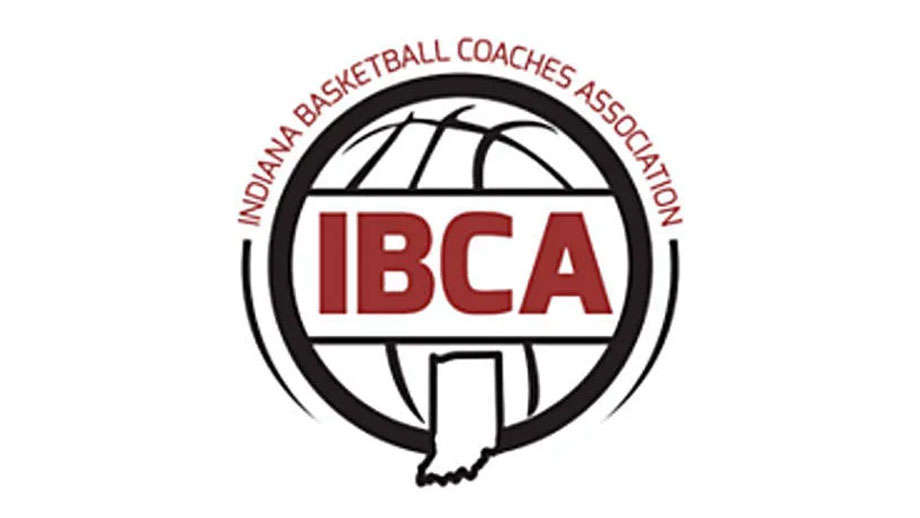 Manchester's Henson named District 1 Coach of the Year by IBCA
Manchester's Henson named District 1 Coach of the Year by IBCA
-
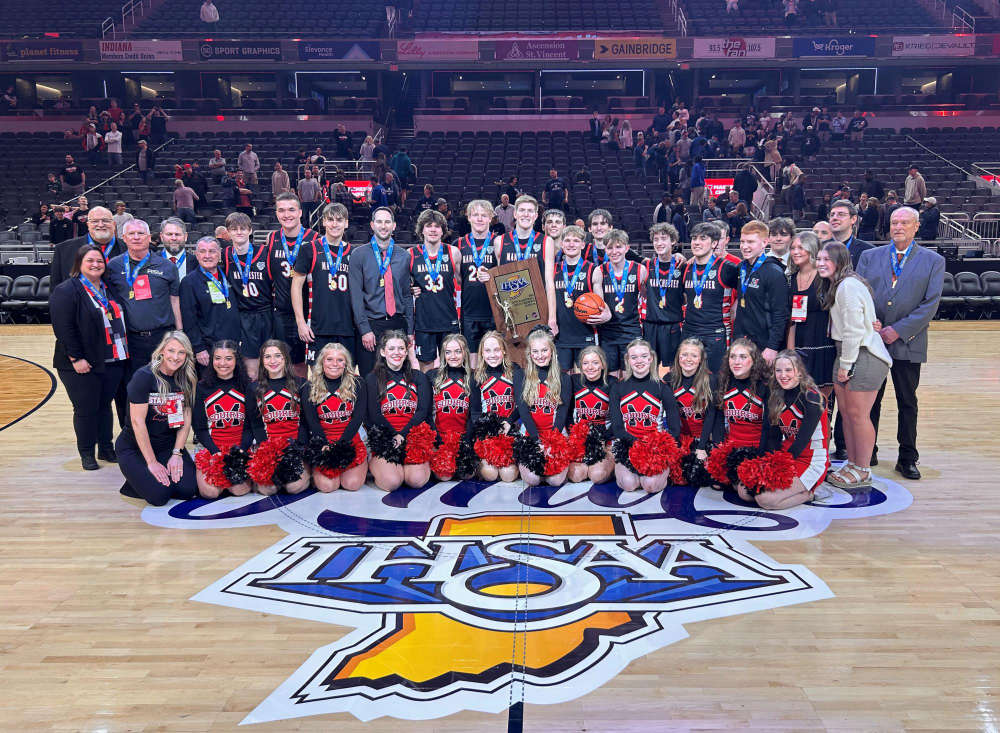 Betten double-double sparks Manchester to first-ever state championship
Betten double-double sparks Manchester to first-ever state championship
-
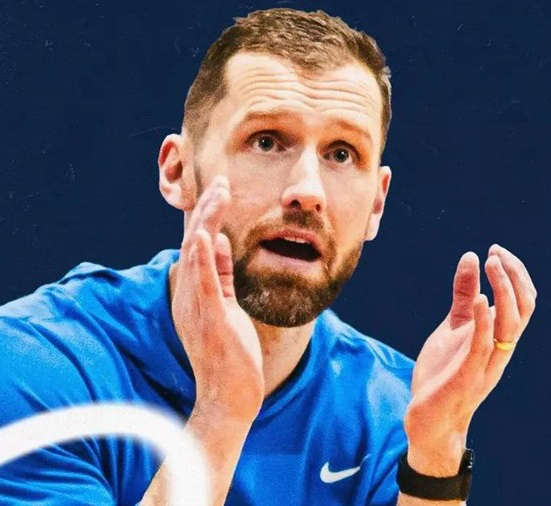 Former Rochester Zebra Kory Barnett named Men's Basketball Coach at Oral Roberts
Former Rochester Zebra Kory Barnett named Men's Basketball Coach at Oral Roberts
-
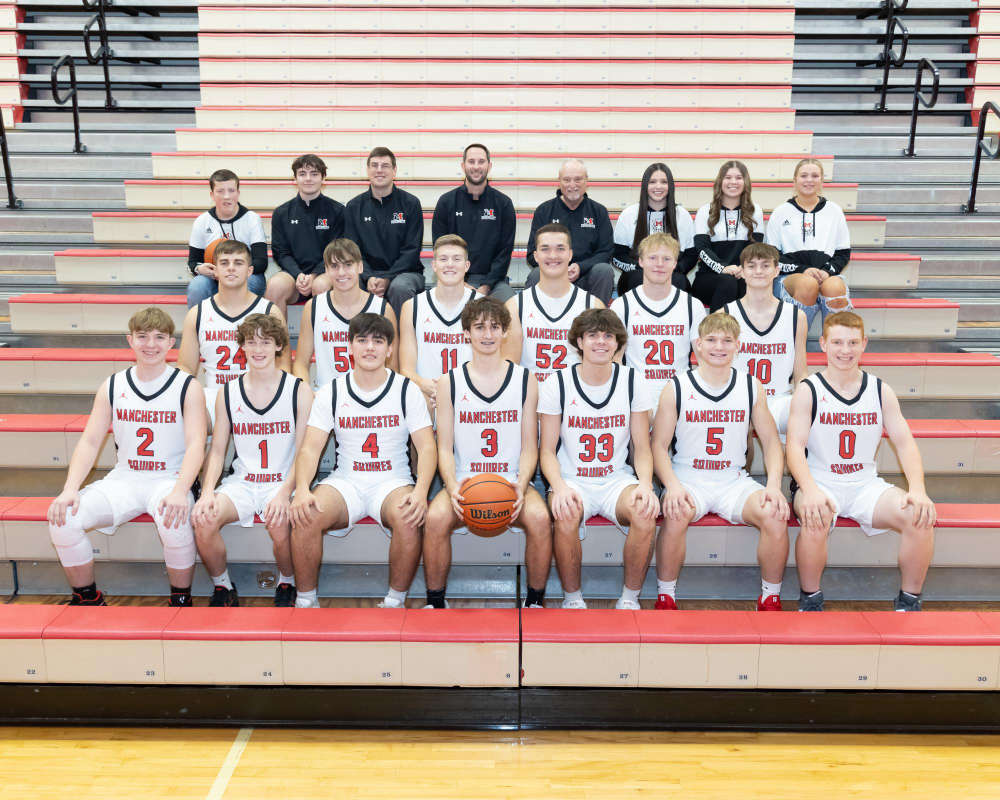 Manchester to represent TRC in today's 2A boys basketball state championship
Manchester to represent TRC in today's 2A boys basketball state championship
The 1A and 2A boys basketball state championship games can be heard starting at 10:30 am on GIANT fm Sports on WROI.




